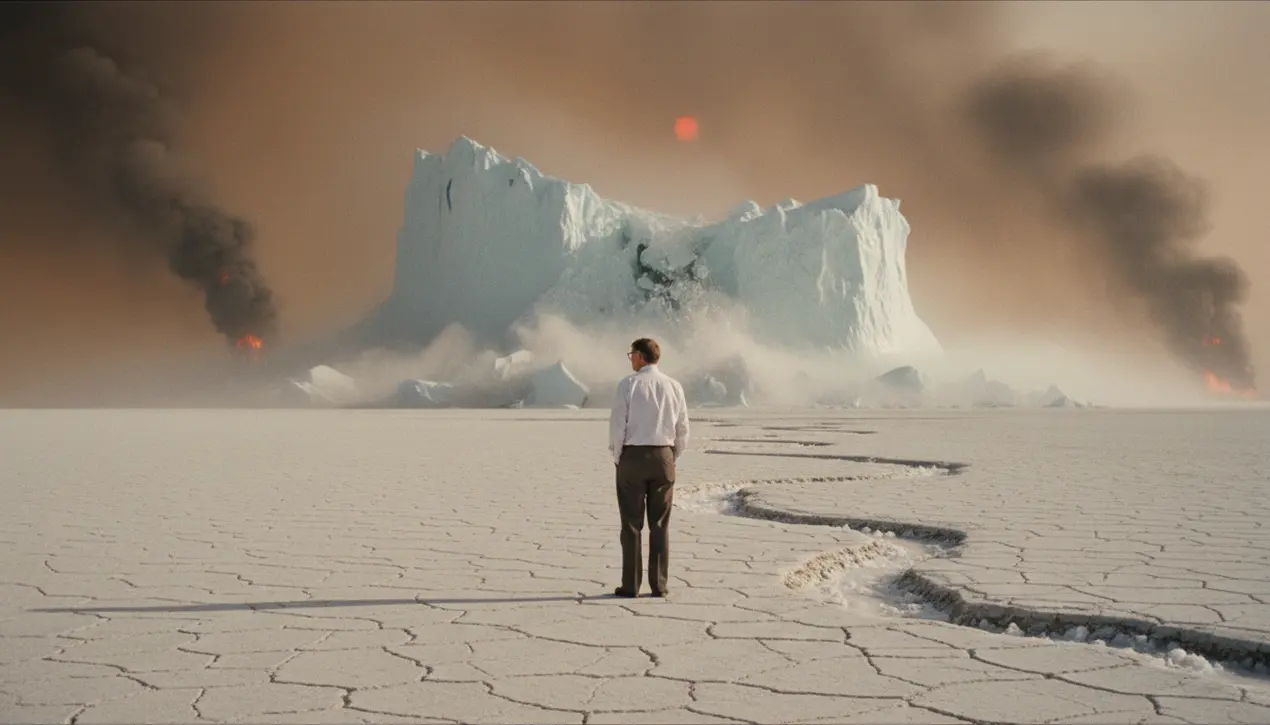
Scienceclimate scienceClimate Change
Bill Gates Overlooks Climate Change's Existential Threat
RA
Rachel Adams
3 hours ago7 min read
In a recent intervention that has sent ripples through the environmental community, Bill Gates has posited that we should de-emphasize the existential threat narrative surrounding climate change to better center human welfare in our strategic responses. This perspective, while perhaps intended to foster pragmatic, people-first solutions, strikes a discordant note against the overwhelming scientific consensus that climate change represents the single greatest long-term threat to human civilization.The central, unsettling question remains: how much risk are we willing to tolerate when the potential consequence is a planetary state disastrous for human welfare for centuries, if not millennia? Gates’ argument, coming from a figure of immense influence, risks creating a dangerous complacency, akin to a doctor downplaying a terminal diagnosis to keep a patient’s spirits up, while the disease continues its metastasizing march. The data is unequivocal; from the relentless melt of the Greenland ice sheet, which holds enough water to raise global sea levels by over seven meters, to the accelerating die-off of the Amazon rainforest, a vital carbon sink now teetering on the brink of becoming a carbon source, the feedback loops are already in motion.The 2018 IPCC report was stark in its assessment, warning that we have barely a decade to enact unprecedented changes to avoid the most catastrophic impacts. To step back from framing this as an existential crisis is to misunderstand the fundamental nature of the challenge.Human welfare is not an alternative to survival; it is entirely contingent upon it. The climate-driven crises we are already witnessing—the famine-inducing droughts in the Horn of Africa, the super-storms ravaging Southeast Asia and the Caribbean, the unprecedented heatwaves scorching Europe and North America—are not future hypotheticals.They are the present-day manifestations of a system pushed to its breaking point, disproportionately impacting the world's most vulnerable populations who contributed least to the problem. This is the brutal irony of Gates’ position: by attempting to refocus on human welfare, he potentially undermines the very urgency required to secure it.The historical precedent is grim; civilizations have fallen for far less. The Bronze Age Collapse, the decline of the Maya, the fall of Angkor Wat—each was precipitated, at least in part, by a failure to adapt to environmental shifts.We are now conducting a similar experiment on a global scale. The path forward is not to soften the language of threat, but to marry that stark reality with a galvanizing vision of human ingenuity and resilience.It requires a mobilization not seen since World War II, channeling trillions into renewable energy, regenerative agriculture, and resilient infrastructure. It demands holding the fossil fuel industry and complicit governments accountable for decades of obfuscation and delay.The choice is not between alarmism and human-centric pragmatism; it is between decisive action now, with all the economic and social disruption that entails, or condemning future generations to a vastly diminished and perilous world. The welfare of humanity, both today and for centuries to come, depends entirely on our courage to stare directly into the existential abyss and act accordingly.
#climate change
#Bill Gates
#human welfare
#existential threat
#featured
Stay Informed. Act Smarter.
Get weekly highlights, major headlines, and expert insights — then put your knowledge to work in our live prediction markets.
Comments
Loading comments...
© 2025 Outpoll Service LTD. All rights reserved.